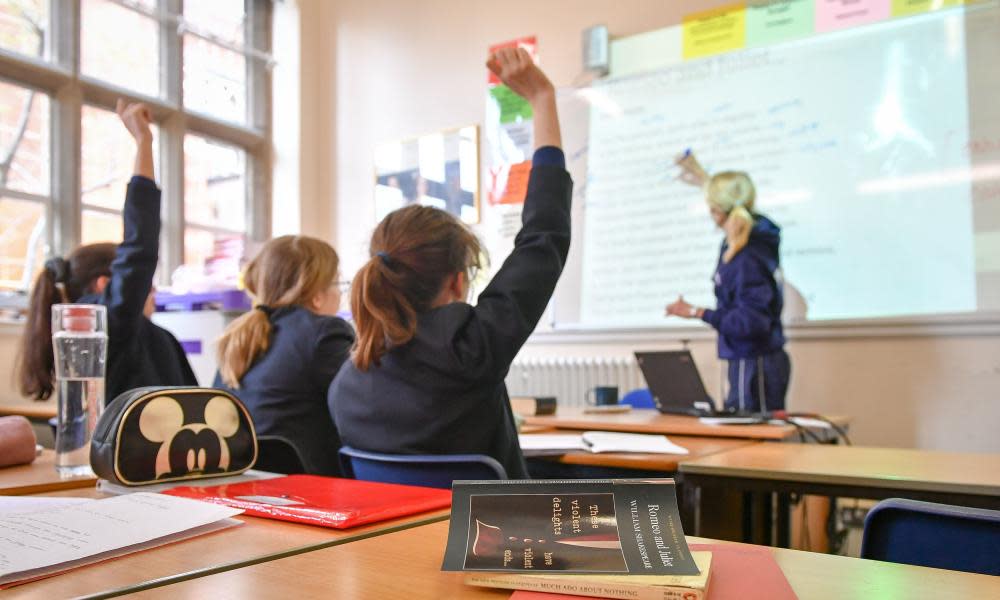London school drops ‘Sir’ and ‘Miss’ honorifics to fight cultural misogyny

Teachers at a leading sixth form will no longer answer to “Sir” and “Miss”, because they’re “deeply unequal” and feed into a view of the world that diminishes women, the school’s executive principal has told students.
While “Sir” brings to mind the heroics of Sir Lancelot and Sir Galahad, “Miss” is how you refer to “a small girl, or an Edwardian shop assistant”, James Handscombe told school assembly at Harris Westminster Sixth Form in central London.
Students will instead be required to address staff by their name – as in “Mr Handscombe” – and failing that, in an emergency where a pupil may have forgotten and needs a swift alternative, “teacher” will be acceptable, “in a pinch”.
It is not the first time the school has tried to make the switch. When it opened in 2014, the same approach was attempted but there was too much else to think about, staff could not make it stick and “sank into cultural misogyny”, Handscombe told students.
“Which is what this is,” he said. “I don’t think that any of you are being actively woman-hating when you call ‘Miss’ over to get help with your chemistry, but we’re all feeding into a view of the world that diminishes women.
“Men get to be fearless leaders and alpha types, get credited for hustling whilst behind the backs of women it’s asked whether they deserve it, whether their career comes from good ideas or good looks, power moves or diversity lists.”
The sixth form was set up as a collaboration between Westminster School and the Harris Federation as a highly selective free school that gives priority to disadvantaged students with academic potential. It has quickly become one of the highest-performing sixth forms in the UK.
The school’s executive principal, meanwhile, has also attracted attention as a result of his enthusiasm for Taylor Swift, praising her in his book, A School Built On Ethos, as a great philosopher and frequently using her songs and lyrics as inspiration.
Indeed, Handscombe’s “No more Sir, no more Miss” assembly address, which he posted on Twitter and has since attracted almost 130,000 views and enthusiastic comments from female teachers, continues the tradition and includes a number of references to Swift’s songs.
Having dropped the idea of trying to ban Miss and Sir back in 2014, Handscombe said a female member of staff raised the issue again earlier this year. He told Schools Week a number of alternatives were considered, but “Madam” was discounted because of “a stroppy connotation”.
Similarly “Ma’am” was dismissed because it sounded like royalty or something from the 1920s. Sensei – the Japanese term for teacher – and the “very Hogwarts professor” were also discussed but discounted as replacements.
Kuljit Rahelu, head teacher at Hornsey School for Girls, in London, said: “We tend to use Ms or Miss and Sir without surnames because students see lots of teachers and support staff throughout their day and it’s reasonable to ask them to remember these two as a form of greeting.”
Geoff Barton, general secretary of the Association of School and College Leaders, said: “Addressing teachers as ‘Sir’ and ‘Miss’ is as old as the hills and something you’ll hear in many schools. It’s a way of implicitly reaffirming the authority of staff. But we live in changing times and obviously people are giving more and more thought to the use of language and its connotations.”

 Yahoo News
Yahoo News 
